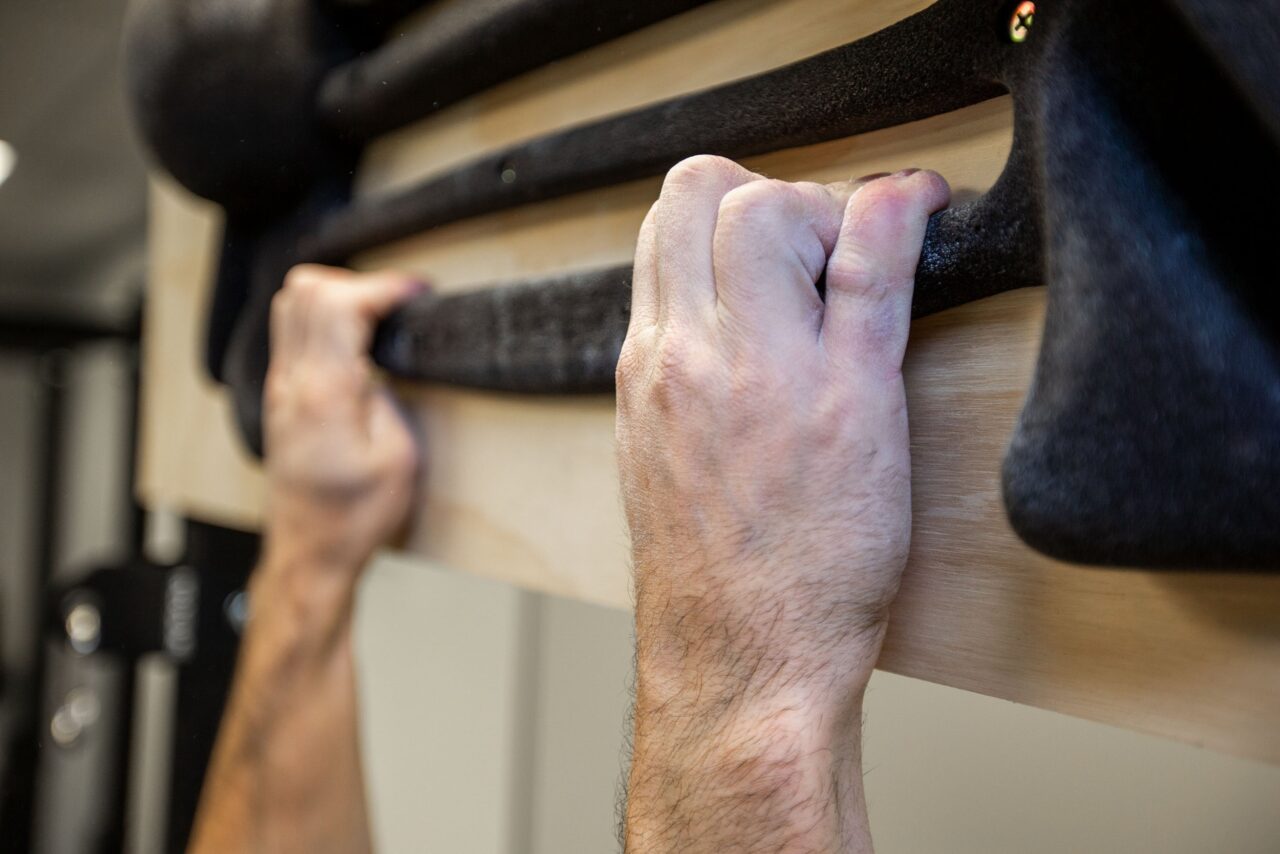The fingers undergo a tremendous amount of force while rock climbing, particularly when crimping. But which fingers take the most force? A study by Vigouroux and colleagues used a biomechanical model to analyze the forces exerted on the fingers of climbers while they were attempting to exert maximal four-finger force in a crimp grip. The results suggest that the middle and ring fingers experience higher fingertip forces and that the A2 pulleys of the ring and middle fingers are close to their rupture thresholds, while the index and little fingers experience lower forces and their A2 pulleys are not as close to their rupture thresholds.
The flexor tendons are responsible for flexing the fingers and thumb, and they travel through a series of pulleys in the hand to allow smooth and coordinated movement. The annular pulleys (A1-A5) are circular pulleys that encircle the tendon, while the cruciate pulleys (C1-C3) are cross-shaped pulleys that provide additional stability to the tendon. All of these structures are crucial for rock climbing performance.
Injuries to the flexor tendons or pulleys can occur when the tendons are overstretched or strained, often during eccentric loading while crimping (like when your foot pops). This can result in pain and swelling over the affected pulley, and may be accompanied by an audible “pop.” A2 and A4 pulleys are the most commonly injured, and the ring finger and middle finger are the most commonly affected.
To diagnose a flexor tendon injury or pulley injury, a physical therapist may use diagnostic ultrasound or MRI to visualize the tendons and pulleys. They may also use special tests, such as a diagnostic clinical cluster, to assess the function and mobility of the affected fingers. Treatment may include relative rest, ice, splinting, physical therapy, and in rare cases, surgery to repair or reconstruct the injured tendons or pulleys.
If you’re a rock climber experiencing knee pain, schedule an appointment with a rock climbing specialist at Mend. We have locations in Boulder and Lafayette, Colorado. Many physicians, surgeons, and physical therapists do not understand the sport of rock climbing and may give incorrect or ill-advised advice on whether or not to return to climbing. The rock climbing specialists and Mend understand the sport and know when and how to safely return to rock climbing.

